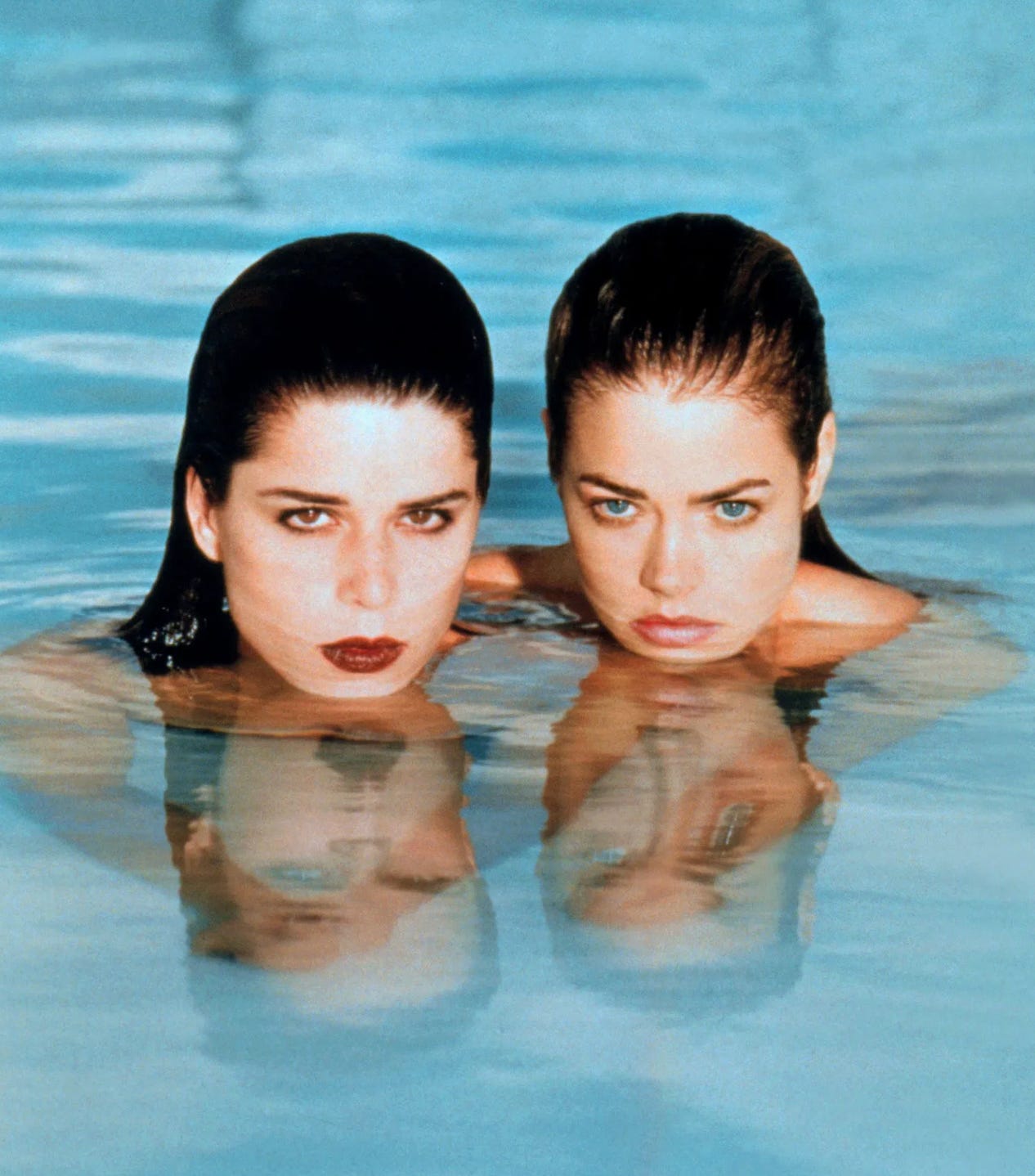WILD THINGS IN THE MIDDLE EAST
The problem is already its own solution; waiting for something already is what we are waiting for
Welcome to the desert of the real!
If you desire the comfort of neat conclusions, you are lost in this space. Here, we indulge in the unsettling, the excessive, the paradoxes that define our existence.
So, if you have the means and value writing that both enriches and disturbs, please consider becoming a paid subscriber.
My favorite detective novels are those that end with multiple denouements: first, the murderer is publicly denounced; then we learn that the true murderer is another person who simply planted false evidence to cover his tracks and put the blame on another suspect; then we discover that both suspects acted together, and that there was no murder at all... The most extreme case is Wild Things (John McNaughton, 1998), which features six successive denouements. The movie follows a high school guidance counselor in South Florida who is accused of rape by two female students: the high-class Suzie and the low-class Kelly.
What follows is a series of subsequent revelations after a police officer begins investigating the alleged crimes. First, we learn that Suzie, Kelly, and the counselor were acting together to extort money from Kelly's wealthy mother, and so on and so on… At the very end, we discover that Suzie was the ultimate mastermind of the plot. Upon finding that Sam (her husband) and Kelly were in a sexual relationship, Suzie blackmailed Sam with photographs of the two using drugs during sex, convincing him to help with her scheme. Suzie subsequently orchestrated the meeting between Sam and Ray at a local bar. During her own staged murder on the beach, Suzie pulled out her own teeth with pliers to make her death appear legitimate. Ray shot Kelly first, then shot himself in the shoulder to make it look as if he had killed her in self-defense. Finally, with Kelly, Ray, and Sam all dead, Suzie is met by Kenneth, who gives her a briefcase full of cash that he describes as "just walking around money" and a check for millions of dollars. As she leaves, he tells her to "be good" before taking her drink, which is full of poison, so that Suzie is literally the only survivor.
Apart from multiple endings, two further features are to be noted apropos Wild Things. First, McNaughton commented in 2018 that Wild Things is his "most political film" due to its focus on social class, concluding: "Who wins? The girl from the trailer park! She's all alone on the ninety-foot sailboat, out on the Caribbean. Pretty much everyone else is dead. That was the nineties, with the concentration of wealth. But the girl from the trailer park takes 'em all down." Second, literary critic John Thorburn suggested that the film's "most under-appreciated element is screenwriter Stephen Peters's obvious debt to classical mythology, tragedy, and especially two plays by Euripides, Medea and Hippolytus." He claims that the character of Suzie is a modern-day version of Medea, while Kelly functions as a Phaedra-like figure, and Sam exemplifies both Jason and Hippolytus.1 The ancient myth does not provide the key or deeper meaning of the story; on the contrary, the modern version brings out the repressed truth of the ancient model, which is that of class struggle.
Keep reading with a 7-day free trial
Subscribe to ŽIŽEK GOADS AND PRODS to keep reading this post and get 7 days of free access to the full post archives.


